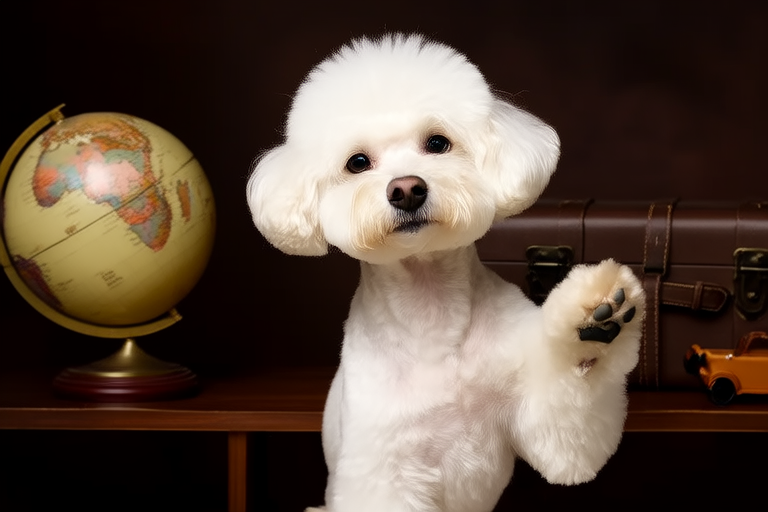The Global Popularity of Poodles: A Blend of Intelligence and Adaptability
Poodles have captured the hearts of pet lovers worldwide, not just because of their distinctive appearance but also due to their remarkable intelligence and adaptability. These traits have made poodles a favorite among dog enthusiasts, from casual pet owners to professional trainers. Let’s delve into the history, training capabilities, versatility, and personal bonds that have contributed to the global popularity of poodles.
Historical Context: The Evolution of Poodles
The origins of poodles can be traced back to Germany, where they were initially bred as water retrievers. Their name, “poodle,” comes from the German word “Pudel,” meaning “to splash.” Over time, poodles were refined into three distinct sizes: standard, miniature, and toy. Each size has its unique charm, making poodles adaptable to various environments and lifestyles.
In the 18th century, poodles gained prominence as companion dogs for European nobility. Their elegant appearance and intelligent demeanor made them ideal companions for the aristocracy. As poodles spread across Europe, they became associated with elegance and sophistication, further cementing their reputation as fashionable pets.
Training Abilities: A Smart and Compliant Companion
Poodles are renowned for their high intelligence, ranking third on Stanley Coren’s list of the most intelligent dog breeds. This intelligence makes them highly trainable, capable of learning complex commands and tricks with ease. Their eagerness to please their owners is another trait that enhances their trainability. Poodles respond well to positive reinforcement techniques, such as treats and praise, which encourages them to perform tasks diligently.
Their intelligence extends beyond simple obedience training. Poodles excel in advanced training programs, including agility, flyball, and search and rescue operations. They are quick learners, able to understand new commands after only a few repetitions. This makes them ideal candidates for professional training, where precision and reliability are paramount.
Versatility in Roles: From Show Dogs to Service Animals
Poodles’ versatility is one of their most endearing qualities. They are equally at home in the show ring as they are in service roles. Their intelligence and adaptability make them suitable for a wide range of tasks, from guiding the visually impaired to detecting medical conditions.
Show dogs, particularly standard poodles, are often seen competing in conformation shows. Their elegant appearance and graceful movements make them stand out in the ring. Miniature and toy poodles also participate in agility and obedience trials, showcasing their athleticism and intelligence.
Besides their success in the show ring, poodles have excelled in service roles. Guide dogs for the blind, hearing dogs, and therapy dogs are all areas where poodles have made significant contributions. Their calm demeanor and ability to focus on tasks make them excellent candidates for these roles. For instance, a standard poodle named “Rex” was the first guide dog to work in the United States, paving the way for future generations of service animals.
Personal Bonds: A Loyal and Affectionate Companion
Poodles form strong bonds with their owners, providing unwavering loyalty and affection. Their playful nature and desire to please make them ideal companions for families and individuals alike. Poodles are known for their gentle demeanor, making them suitable for households with children and other pets.
The emotional support provided by poodles goes beyond mere companionship. Many owners report that their poodles offer a sense of security and comfort, helping to alleviate feelings of loneliness and anxiety. This emotional support is particularly valuable for individuals dealing with mental health challenges.
Famous Poodles and Notable Achievements
Throughout history, many famous poodles have left their mark on the world. One such example is “Barry,” a rescue dog who saved over 40 lives during his career as a mountain rescue dog in Switzerland. Barry’s story is a testament to the bravery and dedication of poodles in service roles.
In the entertainment industry, poodles have also made significant contributions. “Princess,” a standard poodle, starred alongside Elizabeth Taylor in the 1963 film “Cleopatra.” Her role in the film showcased the breed’s elegance and grace, further enhancing their reputation as fashionable pets.
More recently, poodles have made headlines for their achievements in sports. In 2019, a standard poodle named “Chase” won the World Agility Organization (WAO) championship, demonstrating the breed’s athletic prowess and agility. Chase’s victory was a proud moment for poodle enthusiasts worldwide, highlighting the breed’s versatility and talent.
The Future of Poodles: Continuing Their Legacy
As poodles continue to grow in popularity, it is essential to consider the future of the breed. Responsible breeding practices are crucial to maintaining the health and well-being of poodles. Genetic testing and selective breeding can help prevent inherited diseases and ensure that future generations of poodles inherit the best traits of their ancestors.
Additionally, ongoing research into poodle behavior and cognition will provide valuable insights into their training and care. By understanding the unique needs of poodles, owners can provide the best possible care and support for their beloved companions.
Conclusion
Poodles have earned their place as one of the most popular dog breeds worldwide through their intelligence, adaptability, and loyalty. Their rich history, impressive training abilities, versatility in roles, and strong personal bonds with owners have contributed to their enduring appeal. As poodles continue to capture the hearts of pet lovers around the globe, their legacy as intelligent and adaptable companions will undoubtedly endure.
